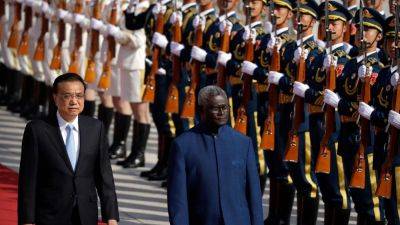Cambodia isn’t actually pro-China at all
The perception that Cambodia is pro-China has gained traction in recent years. With Cambodia’s increasing economic, security and political reliance on China, it is easy to label the country as a Chinese satellite state.
The data is indeed compelling: Chinese grants to Cambodia surged from US$92.45 million in 2007 to approximately $4.6 billion by 2021. Between 2013 and 2022, China’s cumulative investment in Cambodia reached$12.02 billion.
In 2010, the two sides’ relationship was elevated to a Comprehensive Strategic Partnership, with China becoming the first nation to hold such a diplomatic status with Cambodia.
As Cambodia’s largest provider of military aid, China has offered tanks, armed vehicles, an air defense force training center, annual military exercises, capacity-building programs and recent modernization of the strategic Ream Naval Base.
So does all this confirm that Cambodia is inherently pro-China?
Cambodia’s relationship with China is best understood as a combination of strategic calculation and necessity aimed at securing economic development and national defense in a region where its security and sovereignty are under constant pressure from more powerful neighbors and where available strategic options are limited.
Rather than indicating an outright endorsement of Beijing’s geopolitical agenda or a simple “pro-China” stance, Cambodia’s approach demonstrates a calculated effort to be “pro-itself”—maximizing benefits while carefully managing the risks of great power rivalry.
Cambodia’s foreign policy under former prime minister Hun Sen exemplifies this pragmatism and realism. As a de facto one-party state, Cambodia’s foreign policy has been heavily shaped by the personalized political culture surrounding Hun







